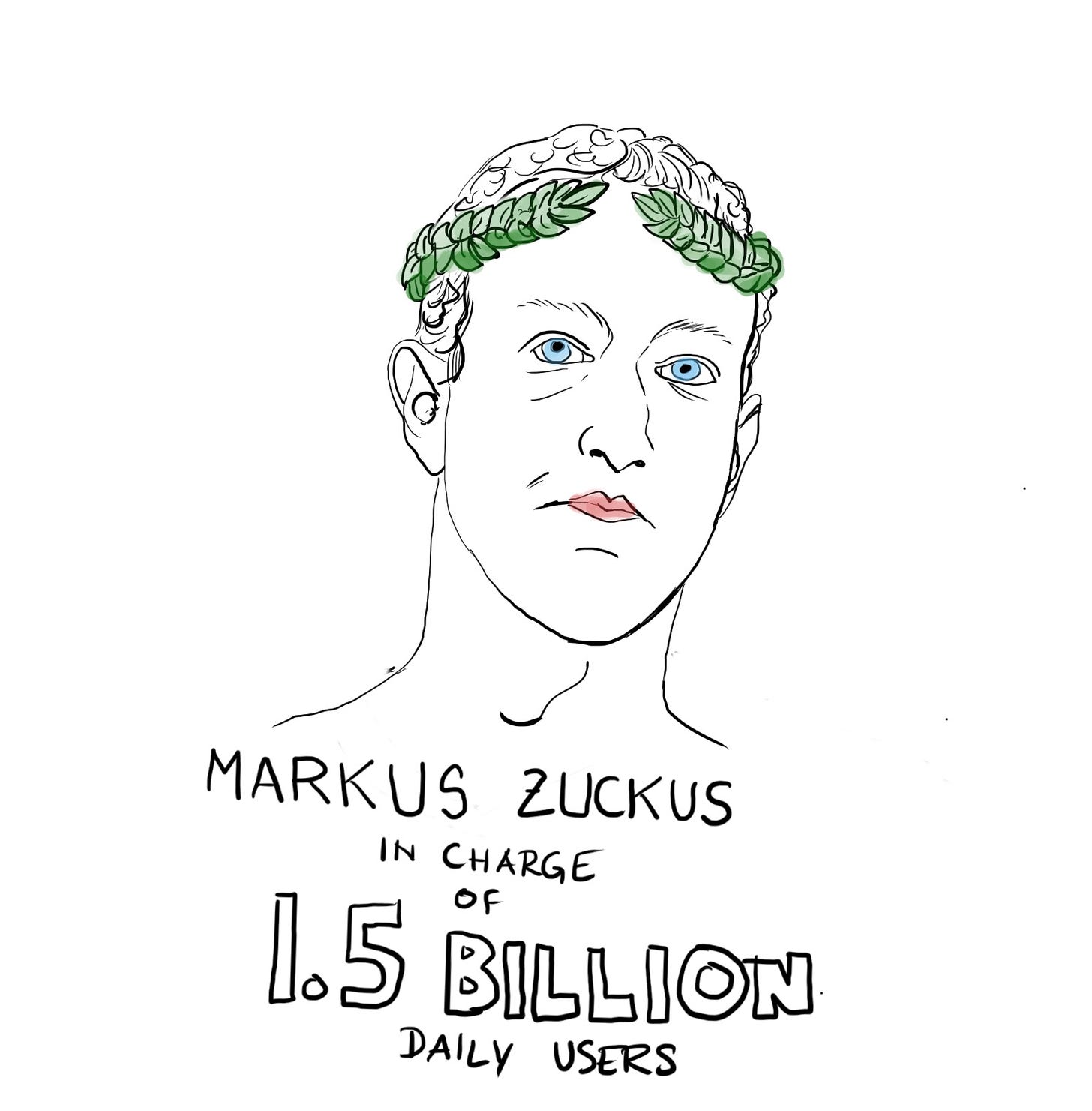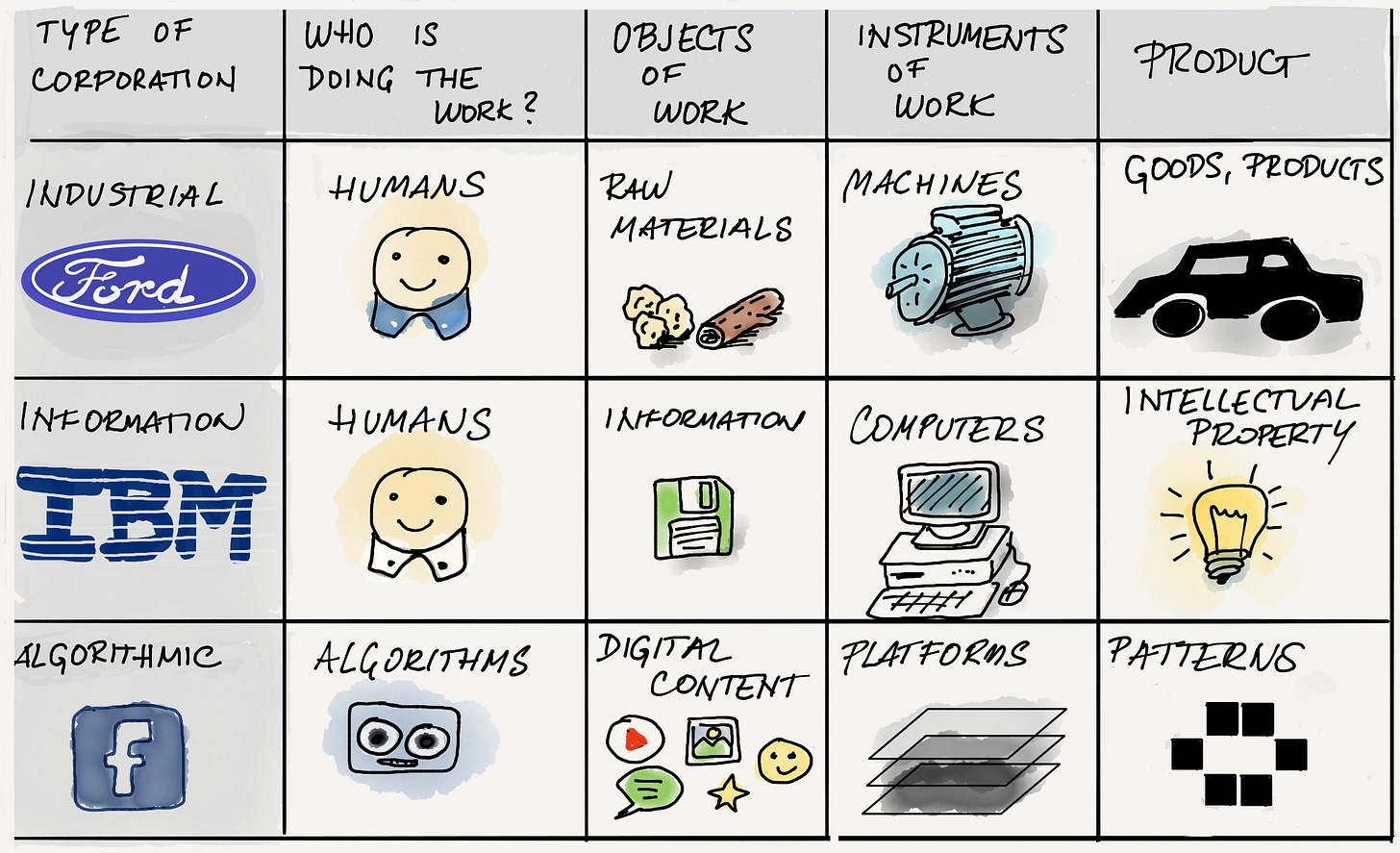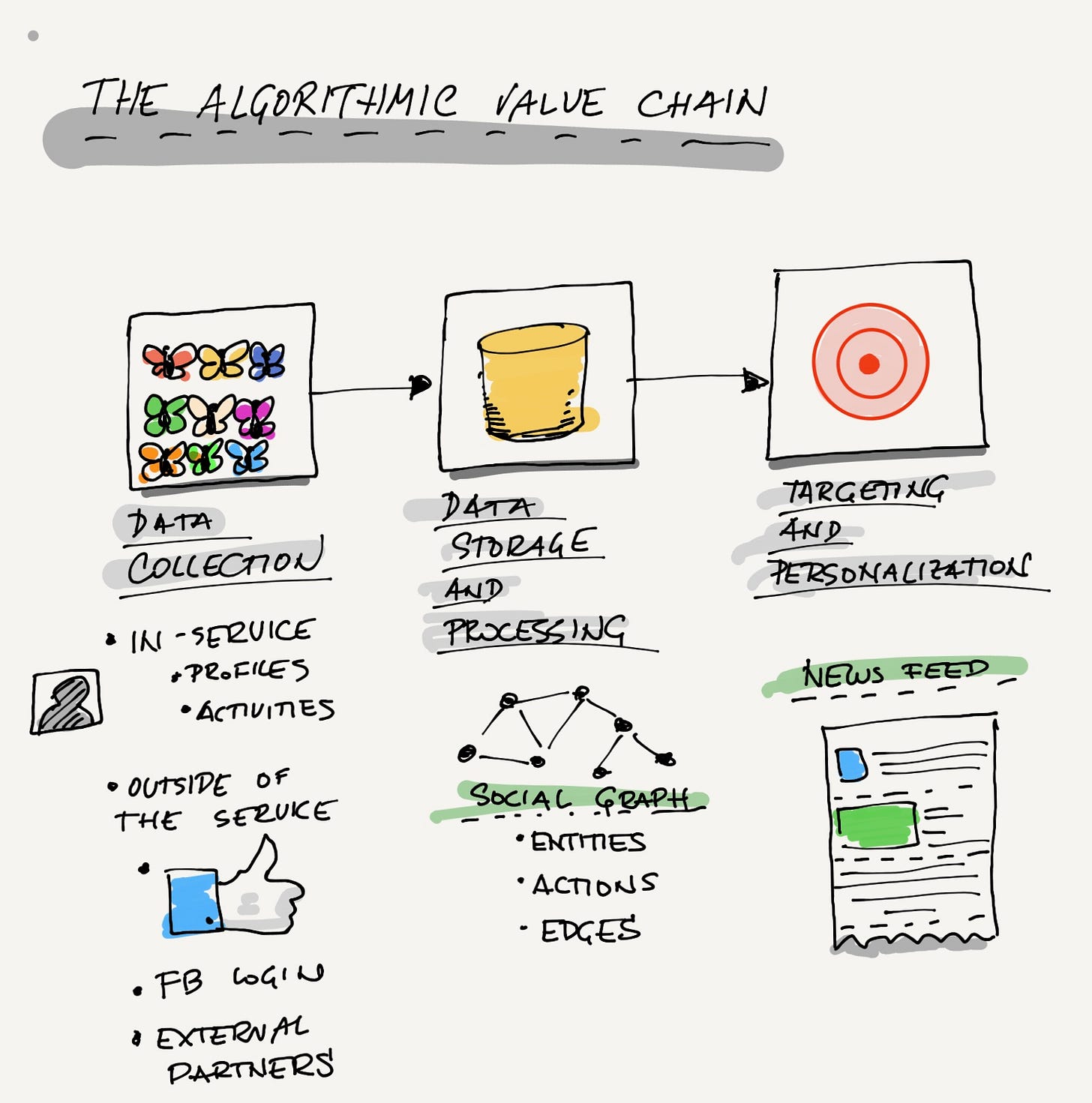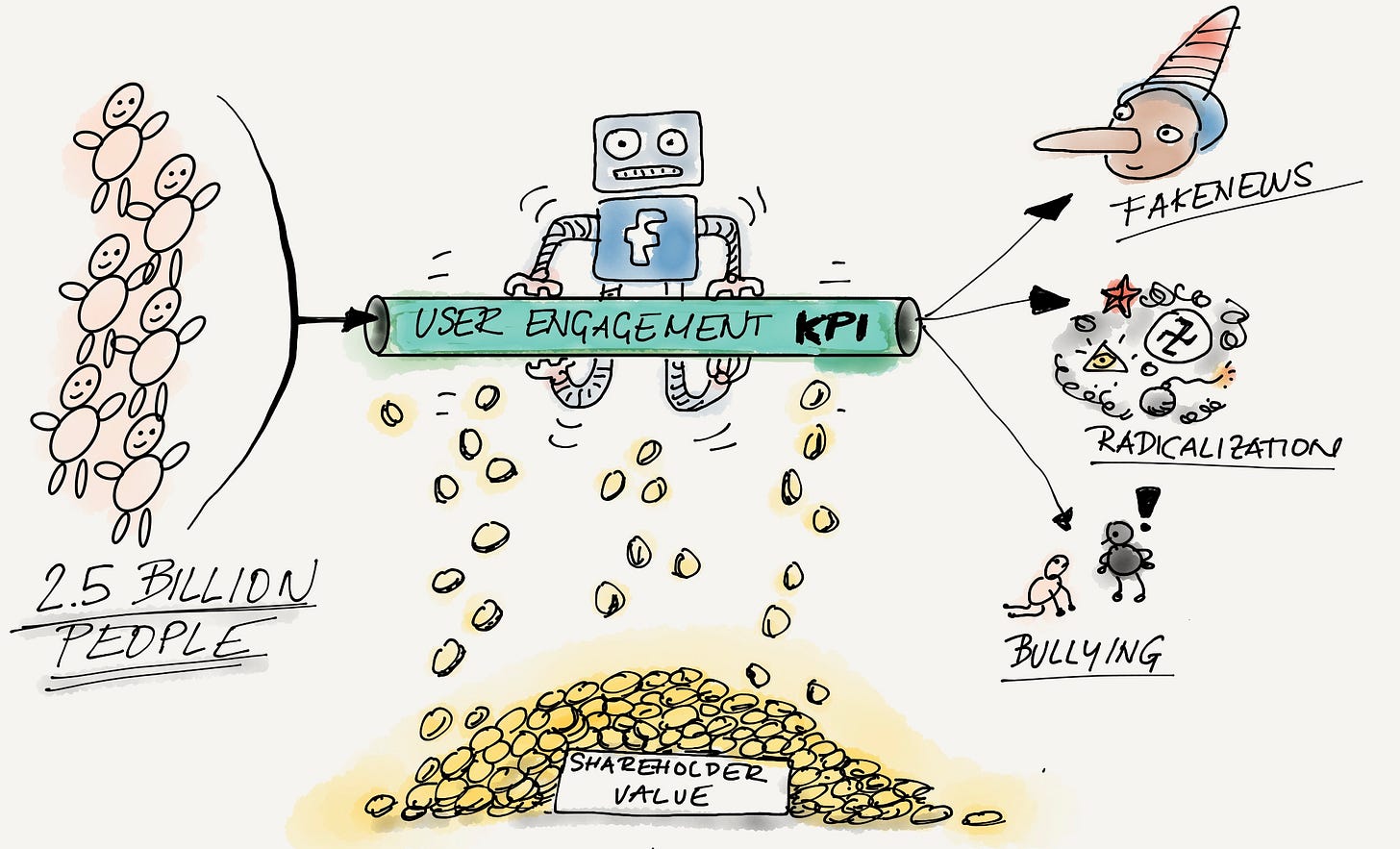Algocracy Special: It’s time to unbundle Facebook
Algorithmic Corporations and their Value Chains
Welcome to this special issue of Algocracy News, in which you’ll find an analysis of Facebook as an Algorithmic Corporation plus a few thoughts on how it could be potentially broken up - or actually - unbundled.
By Josef Holy
More than a week ago, the NYT ran a piece by one of the Facebook co-founders (who left the company more than a decade ago) in which he argues, that it is now time to break up Facebook.
Why? Because it’s simply too BIG. Mark Zuckerberg is in control of information distribution for 1.5BILLION people daily. That is a power, which nobody in the history of mankind has ever had.

However, I think that Facebook should be carefully unbundled, instead of bluntly broken up.
To unbundle Facebook means to decompose it from the perspective of its value chain, instead of from the perspective of its app portfolio - Facebook, Messenger, WhatsApp, Instagram - which is the proposal in the NYT article for breaking it up.
The value chain perspective focuses on where and how the value is created.
Algorithmic Corporations
Facebook’s source of value are its algorithms which collect, store and analyze users data and generate personalized content for those users. Facebook is an example of “Algorithmic Corporation”, which can be defined as a commercial parallel to the “Algorithmic Society”, first used in the great 3-years old analysis of FB operations by labs.rs .

Algorithmic Corporations use algorithms to extract patterns from data. Due to the ongoing digital transformation, many traditional businesses will eventually more or less become Algorithmic Corporations.
Algorithmic Corporations are built around the Algorithmic Value Chain, which we will look into next.
Step #1: Data Collection
The first part of the Algorithmic Value Chain is the Data Collection, in which the data - signals - are being collected through various mechanisms. Facebook collects the user data, which include the user profile information, content created and activities performed in regards to that content.
Facebook is not collecting user data only from its website(s) and mobile app(s), though. It has an ability to collect various types of user data also from outside of its own venues. This is done either through widely deployed online tracking mechanisms or through partnerships with various data broker companies.
For Facebook, the users are a raw material to mine the patterns and predictions from. That is not much different from natural resources like the iron ore, which have been mined and processed by traditional industrial companies for centuries.
Contrary to the popular saying “if the digital service is free, then you are the product”, the product of the Facebook Algorithmic Corporation are not users.
Its product are patterns and predictions, which are consequently used for personalized targeting of content and (more importantly) ads.
Step #2: Data Storage and Algorithmic Processing
The second part of the value chain is the Data Storage and Algorithmic Processing. This is where any Algorithmic Coporation stores the data in structures, which are best suited for their business model. Facebook is collecting and storing data in a metastructure called “The Social Graph”.
Social Graph is essentially a network of nodes and their connections. The nodes are users and content (photos, videos, articles, etc.) and connections are expressions of their relationships, built based on their mutual activities. Social Graph is the primary structure which patterns, personalizations and predictions are extracted from.
Step #3: The App
The third part of the Algorithmic Value Chain is “The App”, through which the value generated by algorithms is delivered. In the case of Facebook, its main app is the News Feed, which is the delivery mechanism of personalized content and ads to its users.
In this model, WhatsApp and Messenger are not an apps, through which Facebook Algorithmic Corporation would be realizing its main value. WhatsApp and Messenger are actually a Data Collection vehicles, contributing additional “messaging metadata” into the main Social Graph.
Unbundling Facebook
The Algorithmic Value Chain - Data collection, Storage & Processing and “The App” represents a generalized high-level description of the value chain, where algorithms turn data into value. With this model in mind, how could the Facebook be unbundled?

In my opinion, the Data Collection and Storage parts should be pronounced a public utility of some form. Personal data represent the most valuable asset of the Algorithmic Society as they can be used for good or abused for control and oppression.
The parts of the Algorithmic processing and “The App” then should ideally be unbundled into an open market, in which various entities (private as well as public ones) would compete in delivering different types of value derived from the underlying data.
The thing is, that the algorithmic processing done by Facebook represents only one way of deriving value from all the data they collect (and boy, have they been data hungry).
The Main Problem: Narrow KPI
User engagement is the ultimate goal, which everything what Facebook does is optimized for.
The user engagement is Facebook’s ultimate KPI.
It’s narrowness is the fundamental cause of the negative externalities like the fakenews and weaponized propaganda, fragmentation of public discourse into echo chambers and others, because systems driven by narrow KPIs are fragile and easily corruptable.
From this point of view, Facebook is probably the worst ran totality in the world, because even Kim Jong-un is not running North Korea against a single number.

We need new types of apps and services to emerge, which will optimize for a wider variety of KPIs other than the user engagement.
Just try to imagine all the services, which could really help people to be better connected and to live more quality lives, from the level of individual families to the society as a whole.
Regardless of HOW the unbundling may be done in the end, the models of the Algorithmic Corporation and Algorithmic Value Chain are often missing in the current discussions about the regulation of Facebook and other Algorithmic Corporations.
You have just read the very first special issue of Algocracy News. How did you like it? Feel free to send us a feedback!
The next issue will be again full of links to interesting articles. Stay tuned!
